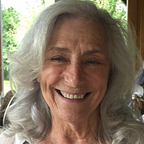Oscar-Shortlisted Doc ‘Boy 23’ About Brazilian Nazi Worship and Slavery
A STORY FROM THE PAST SHEDDING LIGHT ON THE PRESENT
Screening is 11/19 at 7:00pm, Q+A and reception to follow. Downtown Independent — 251 S Main Street — Los Angeles
As fascism surged globally in the 1930s, a group of Nazi worshipping members of the Brazilian elite took 50 black boys from an orphanage in Rio de Janeiro and brought them to a ranch in rural Sao Paolo where they were used as slaves and were subjected to a program of eugenics-based brutality.
Lies Never Stay Hidden For Long
In 1998, the historian Sydney Aguilar Filho was teaching a class on World War II and Nazism in a high school in the countryside of São Paulo.
When he showed the class the Nazi swastika, a student mentioned that on the farm where she lived, a few miles away, there were bricks engraved with that same symbol. “Boy 23” follows Aguilar’s groundbreaking research into the swastika-branded bricks which exposed the close links between sectors of the Brazilian elite and Nazism that were, until recently, only a pale and forgotten shadow in the history of Brazil.
There is no question that the Nazi ideology adopted by Brazilian elite directly inspired the racist eugenics project implemented on the Cruzeiro do Sul Ranch in Sao Paolo. And so on one level, “Boy 23” is a history lesson about the enduring connections between fascism and systemic racism.
“Boy 23” does not let us forget that the consequences of toxic ideologies gone unchecked are real and terrible. Amazingly, the film introduces us to two survivors of Cruzeiro do Sul, Aloísio Silva and Argemiro Santos, who share their stories of a stolen childhood for the first time.
Aloísio tells of dehumanization beyond comprehension in a program that began by robbing him of his his identity and replacing his name with a number. He is Boy 23, as much now as he was then.
Strong Medicine for Dark Days
Filmmaker’s Comments
“Racism has always been there. It has never stopped. Understanding the past is crucial because, it still is reflected in the present. We can see traces of it all around. Understanding those dynamics, the ways in which the elite of society used to articulate back then, we notice that some traits have survived to this day. That is a way of countering it, articulating new proposals.”
-Belisario Franca
BELISARIO FRANCA was born in the 1960s in Rio de Janeiro, Brazil, during one of his country’s darkest times. He grew up under a military dictatorship that heavily controlled every facet of society. From that experience grew his desire to show the reality of life as it is experienced by the people living it, unmediated by power or ideology: real people telling their own stories and, often, their fight to transform them. Since 1980, he has filmed more than 50 documentaries and television programs and received multiple awards.
